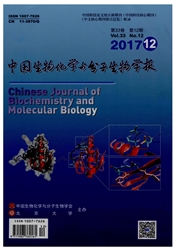

 中文摘要:
中文摘要:
肝脏疾病正逐渐成为全球棘手的医疗问题。肝细胞是肝脏生理活动的主要承担者,在肝脏疾病的研究以及药物的研发和测试方面有着举足轻重的作用。然而,体外分离培养的原代肝细胞面临在体外不能无限增殖和稳定表达肝脏特异基因等问题。有强大的自我更新能力和三胚层分化潜能的诱导性多能肝细胞(i PSCs)能被诱导因子、外源基因和小分子化合物等定向诱导分化为功能性肝细胞。同时,还避免了伦理、宗教以及免疫排斥等诸多问题。本文简要综述了从不同策略诱导i PSCs成为功能性肝细胞的研究方法和成果,并对该领域进行小结和展望。
 英文摘要:
英文摘要:
Liver disease is an important clinical problem. Hepatocytes are mainly responsible for the liver physiological activities and play a vital role in the cellular therapy of liver disease as well as in drug discovery and screening. However,primary hepatocytes do not proliferate indefinitely and express liverspecific genes stably in vitro. The induced pluripotent stem cells( iPSs) which established the ability of self-renewal and effective deformability could be induced to hepatocytes by cytokines,transcription factors,and small-molecule compounds. Meanwhile,it also avoids the issues of ethical,religion and immune rejection. In this review,we summarized the methods and results of the derivation of functional hepatocyte-like cells via different strategies and gave a summary and outlook in this field.
 同期刊论文项目
同期刊论文项目
 同项目期刊论文
同项目期刊论文
 Analysis of the ways and methods of signaling pathways in regulating cell cycle of NIH3T3 at transcr
Analysis of the ways and methods of signaling pathways in regulating cell cycle of NIH3T3 at transcr Study on activity of the signaling pathways regulating hepatocyte differentiation during rat liver r
Study on activity of the signaling pathways regulating hepatocyte differentiation during rat liver r Role of death receptors in the regulation of hepatocyte proliferation and apoptosis during rat liver
Role of death receptors in the regulation of hepatocyte proliferation and apoptosis during rat liver 期刊信息
期刊信息
